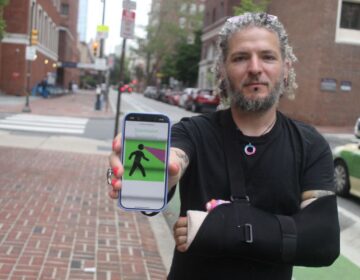Stepping back from vengeance; seeking reformative justice
-
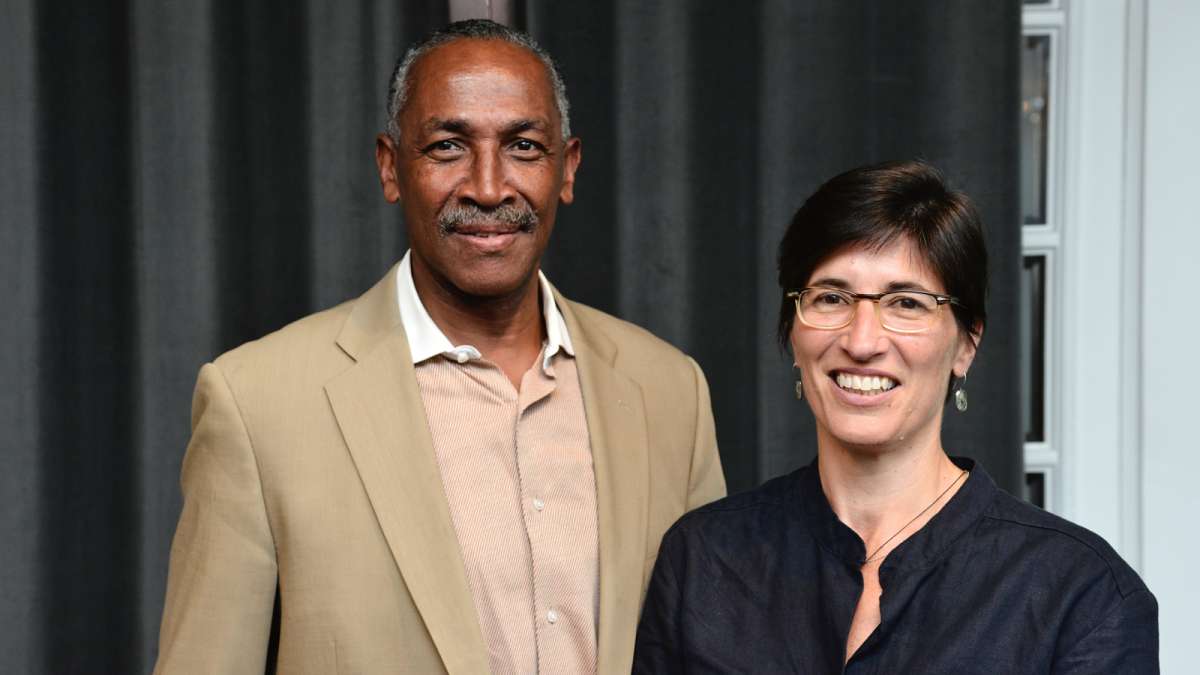
-

-
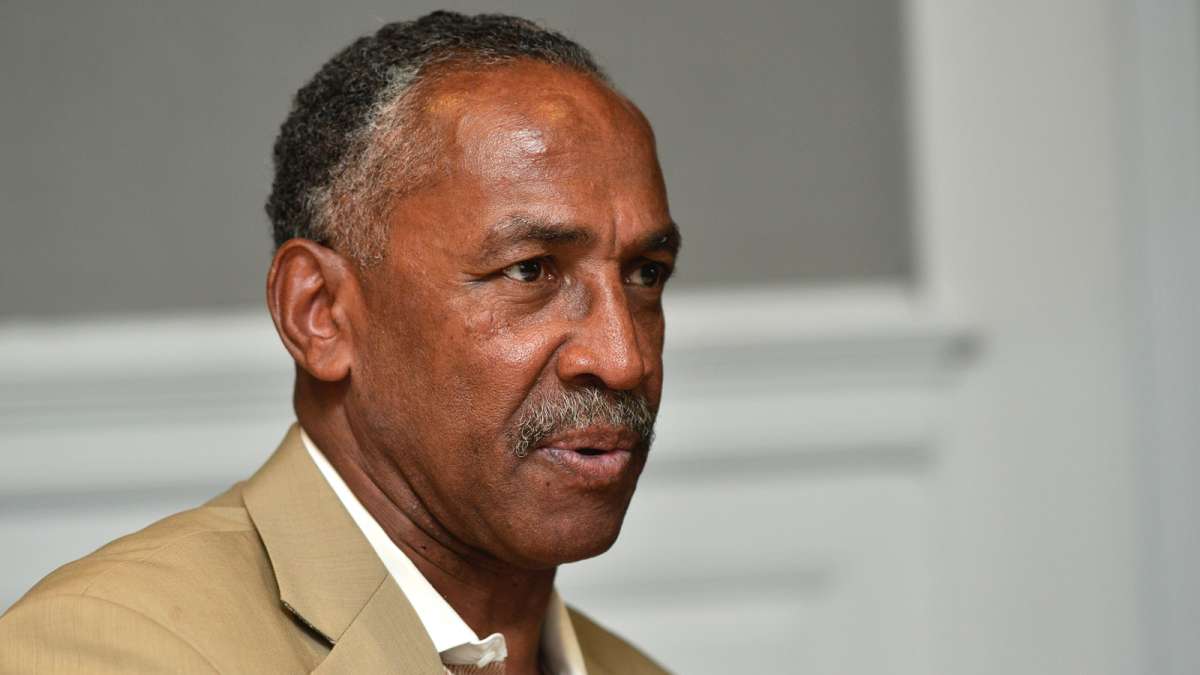
-

-
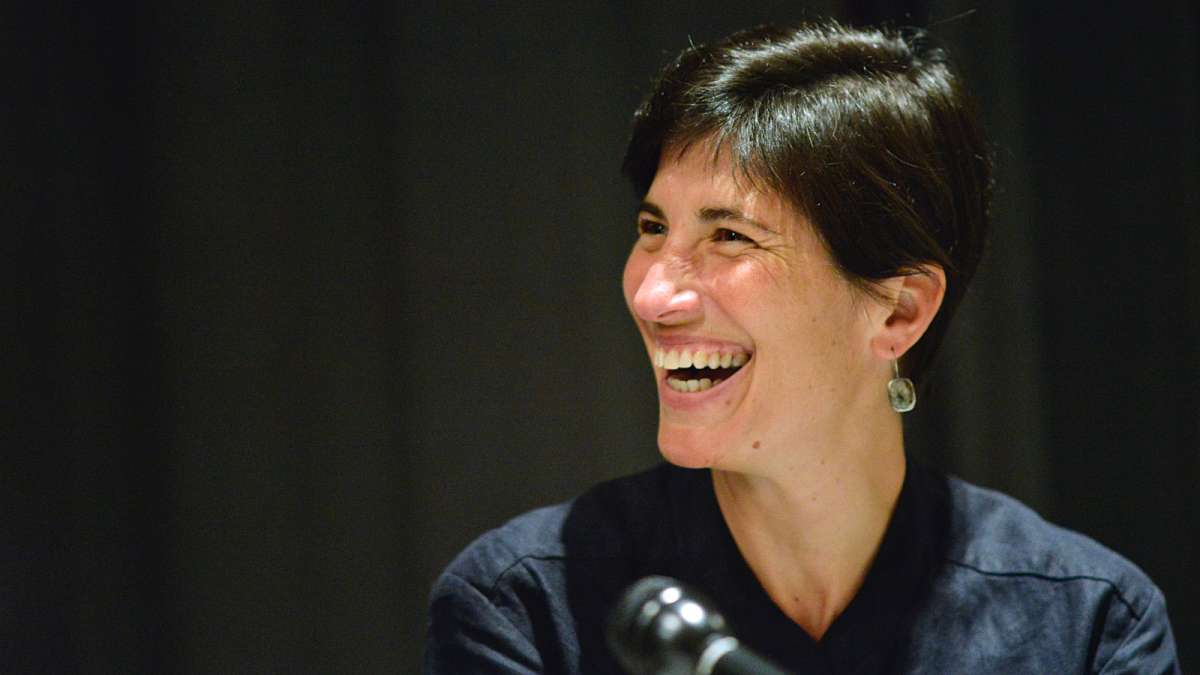
-
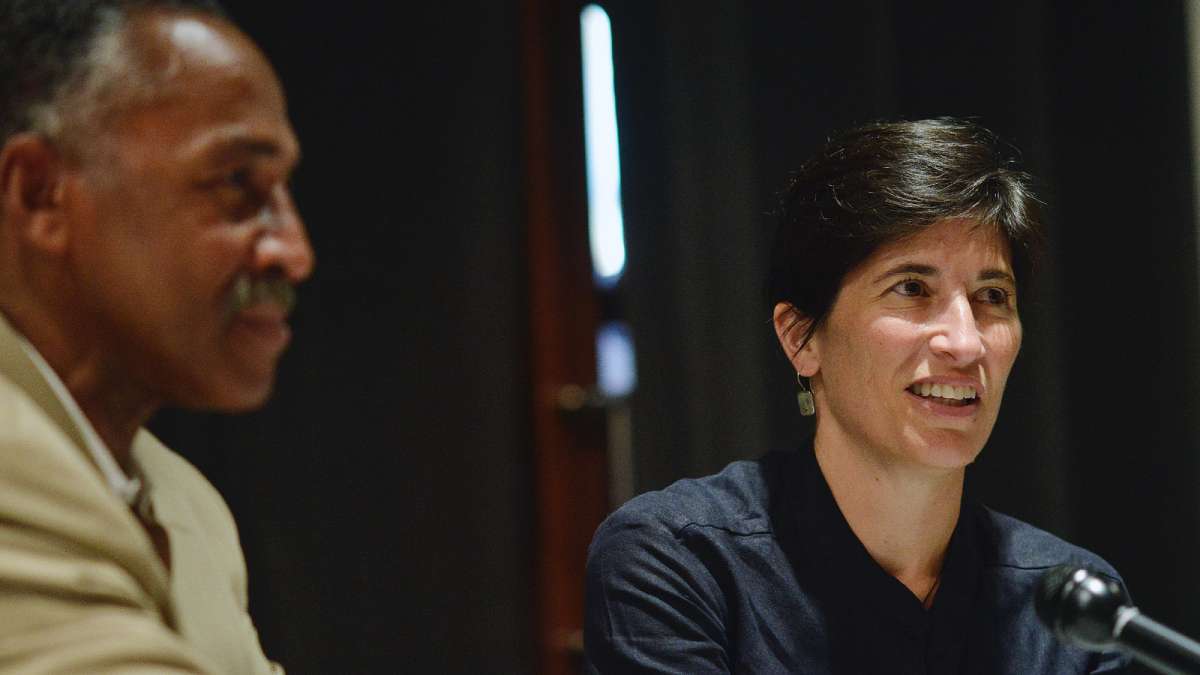
Tyrone Werts and Samantha Broun. (Bastiaan Slabbers for NewsWorks)
-

Samantha Broun’s mother was the only surviving victim of a serial killer. You might think that would make Broun a vengeful crusader against crime.
And maybe, at first, she was. In 1995, a year after Reginald McFadden beat, raped, and kidnapped her mother Jeremy in a five-hour ordeal, Broun testified at a Pennsylvania state senate hearing on crime, still so angry about her mother’s suffering that her voice shook and tears came easily.
But then McFadden became Pennsylvania politicians’ poster boy for what could happen when an unreformed convict goes free.
Commuted in 1994 after serving 24 years for suffocating an elderly Philadelphia woman, McFadden used his second chance to indulge his inner demons, murdering three more people and terrorizing Broun’s mother in New York. Police arrested him again after 92 days of freedom. His deadly spree led lawmakers to change clemency policies, all but halting commutations for lifers in Pennsylvania, a state with one of the highest lifer populations in the country.
“As a person who testified in the Senate Judiciary hearings on crime that Tom Ridge had right after he was elected, I was speaking from a place of fear and anger,” Broun said. “And what I, in retrospect, wanted was somebody to say ‘Something went wrong, and here’s what it is, and we’re sorry.’ But what happened was policies were made and constitutional changes were made based on fear and anger. I don’t think that’s a place to make judicial changes from. There is no justice that comes from fear and anger.”
So Broun channeled her conflicting, evolving feelings into her work, creating an hour-long documentary for Transom, the Massachusetts-based public-media website, where she works as a multimedia and radio producer. In it, she laid out McFadden’s chilling crimes and the resulting uproar that so changed the political and criminal justice landscape in Pennsylvania.
But she also explored McFadden’s background, talked to his family and interviewed other lifers, like Tyrone Werts, doomed to languish behind bars by McFadden’s rampage. As she grappled with whether she could ever forgive McFadden, she explored themes of forgiveness, transformative justice, and unintended consequences.
She then, as they say, took the show on the road.
Since the spring, she has hosted a series of listening events, aiming to spark conversation — and ultimately change. Two, which are open to the public, are set for Wednesday at St. Joseph’s University and Thursday at the University of Pennsylvania. Broun’s mother and Ernie Preate, the former state Attorney General who cast the parole board’s lone vote against commuting McFadden, are expected to attend the Penn event.
An ongoing priority: To get her documentary heard behind bars.
Broun hosted a listening event at the State Correctional Facility at Graterford in June, and she aims to visit as many of the state’s 25 other prisons as her schedule permits.
“My purpose in doing this is two-fold: I’ve felt connected to everyone in what happened,” she said, referring to the attack on her mother, “and the people who are behind bars as a result of all the changes made in Pennsylvania since then. So I see this as an opportunity to have a discussion from multiple perspectives, and to raise the question of whether those were ultimately good changes. Second, we live in such a segregated society and world in that it’s really easy for somebody like me to be really disconnected from people who are in prison. This makes it more real to me, and connects us in a way that may bring about change.”
To that end, she has befriended Werts, who was the getaway driver in a 1972 robbery and murder in North Philadelphia that earned him a life sentence. In one of his last acts as governor, Ed Rendell commuted Werts’ sentence in December 2010, freeing Werts after 36 years behind bars. Werts has spent the years since advocating for criminal-justice and prison reform.
When she was working on her documentary, Broun reached out to Werts and asked to interview him. Initially skeptical of her motives, he agreed to an interview with great reluctance.
But he was so moved by the finished documentary, he said, that he now often accompanies Broun to her listening events.
“For 20 years, the whole Reginald McFadden episode had hung like a dark cloud over Pennsylvania. It resulted in some really harsh changes to the constitution that actually killed a lot of hope in Pennsylvania for lifers. That was a dark cloud. I thought that this piece would remove those clouds and let the sunlight shine in,” Werts said.
He especially wanted to return to Graterford, where he spent so many years as an inmate.
“To hear Sam’s transformation — when she says she was pissed at the beginning, and then after some time had passed, she began to experience this forgiveness and really thought about the impact of her testimony before the senate and what that meant for not only the 5,000 men and women serving life without parole but their families — I really wanted an opportunity to go inside, because I know the psychology and I know the pain and the traumatic impact of the McFadden experience on lifers,” Werts said. “I thought it would be cathartic for them to hear this piece and have the opportunity to voice their opinions.”
He added: “I eventually hope to use this piece to show people that McFadden was an anomaly; he was an isolated case. Most lifers that get out, you never hear from them again. They don’t recidivate.”
Broun keeps the letters she received from Graterford inmates who heard her documentary, like Fred Magondu, as inspiration to keep going.
“When those who have been harmed — you and your mother — extend an ‘olive branch’ to those of us who have caused harm, we are empowered to continue striving to be the best we can be and give back to our communities,” Magondu wrote to Broun.
DV.load(“https://www.documentcloud.org/documents/3211632-BrounEvent.js”, {
width: 600,
height: 600,
sidebar: false,
text: false,
container: “#DV-viewer-3211632-BrounEvent”
});
WHYY is your source for fact-based, in-depth journalism and information. As a nonprofit organization, we rely on financial support from readers like you. Please give today.



